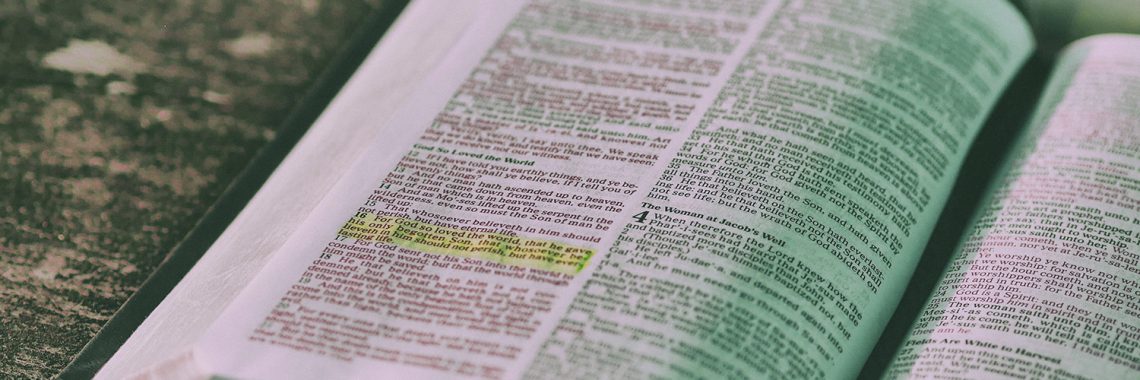The perfect family… has never existed. And never will. Yes, we might perceive some families as perfect, but that’s only what you see on the surface. In my short career, I’ve come across a great number of near-perfect families that turned out to be anything but that. A perfect community exists in only two places: heaven and graveyards. What about the Holy Family of Jesus, Mary and Joseph, which is celebrated today in the Church across the world? Well, dare I say it, it wasn’t a perfect family. Holy – yes, but not perfect.
A common mistake is to think of holiness as the state of moral perfection; everything done or said by a holy person must have been infallibly impeccable, flawless and ideal. There are two main reasons for such a mix-up. The first one is nausea-inducing, sugar-coated stories of the saints, presenting the sainted individuals as perfect. We have heard such stories mostly as children – so they were told in an age-appropriate manner – but we rarely revisit them as adults in a manner appropriate to our current age. If we did this, we would discover how fallible, imperfect, and sometimes truly irritating individuals they were but – most importantly – how well-developed and deep their sense of imperfection, weakness, and sinfulness was. The second reason for mixing up holiness and perfection is a simplistic, two-dimensional, black-and-white way of teaching the Christian moral code. By definition, it leaves no room for a nuanced, flexible approach to the challenging situations we face in real life. There are two main unintended consequences of such an attitude. One is that we give up trying – because such high standards are impossible to reach. This leads to ever-greater moral slackness and self-justification of misdeeds and bad behaviour. The other consequence is relentless, dogged, stubborn, but ever-failing attempts to reach such heights. It often leads to a scrupulous mind when people continually analyse their real or imagined failures, deficiencies, missteps, weaknesses and so on. It’s often combined with the false belief that listing them in full in prayer or in sacramental confession will lead to their disappearance from that person’s life. It never happens, so it creates a self-propelled vicious spiritual circle.
“God created humankind in his image, in the image of God he created them; male and female he created them.” (Genesis 1:27). We are all called to be holy; sainthood is our ultimate goal and destination of travel. We are on the journey towards it, but we are not there yet. To become holy means the final restoration of our original likeness to God. We achieve that gradually, over the course of our lives, by interacting with people around us. Sainthood doesn’t exist in a void, a space deprived of other people’s presence. It can only develop in a community. The most important fundamental unit of such a community is the family. This is where we learn the most essential human and social skills; it’s impossible to overrate how crucial the first several years of life are. Developmental psychology is a modern, structured, scientific way of understanding how children advance and grow. Still, since time immemorial, people instinctively knew that the family created the right environment for such growth. That’s why a divine decree warranted the preservation of the family. It was protecting powerless wives and children against whimsical, selfish husbands and fathers. That’s the ideal model pattern of the family.
Of course, where two or more people are involved, there are tensions, strains, jitters, nerves… You name it. We tend to see them as something negative, bad, something to avoid, sometimes at great personal expense. But such things are natural and essential parts of communal life. Dealing with such challenges gives us great opportunities to learn how to be better, ease tension, solve problems, calm the situation and so on in a better, constructive way. Making mistakes is part of the process; if we reflect on them, make amends, ask for forgiveness and forgive, we grow into better, more mature versions of ourselves. Over time, we have a great chance to be well-equipped to deal with the wider world and the challenges that it throws at us. In this process, we use the gospel, the commandments, and the Church’s moral teachings to steer us towards the right attitudes and behaviours. Sacramental confession offers us an impartial, dispassionate view of the challenges we face, a view that can help us realise different aspects or dimensions of our troubles. The family can be a perfect environment for such development if all those involved – particularly the husband and wife – make every effort to bring it about.
Although we don’t have a lot in the gospels on the family life of Jesus, Mary and Joseph, there are enough hints at their internal struggles and external challenges to find consolation and encouragement for our efforts. Your family will never be perfect. But it can be a source of love that overcomes everything.

